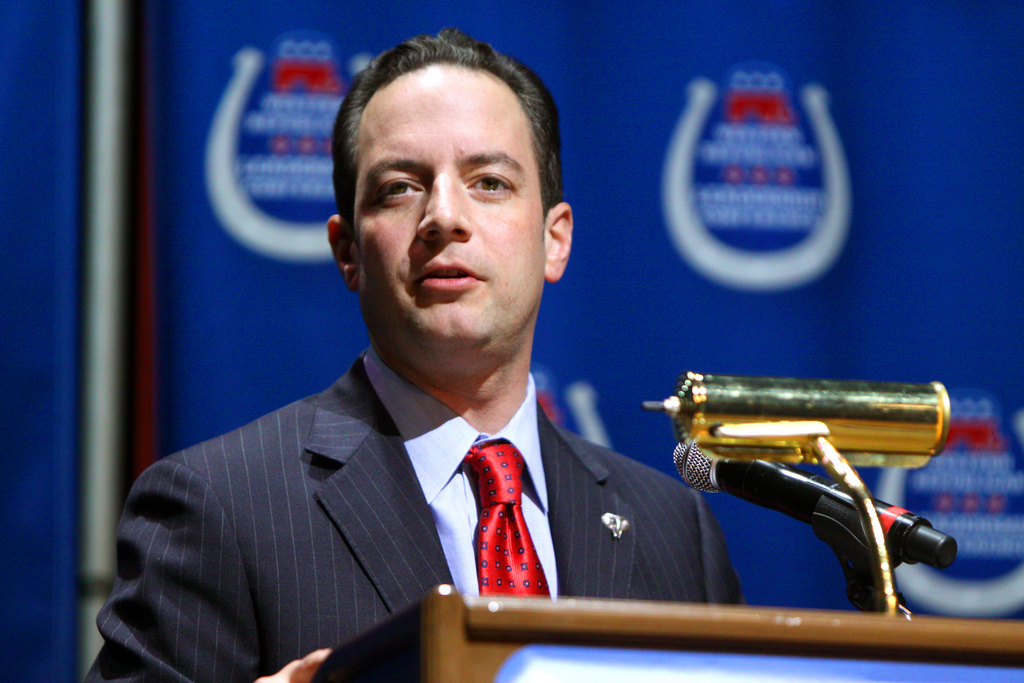Rience Priebus, Chief of Staff:
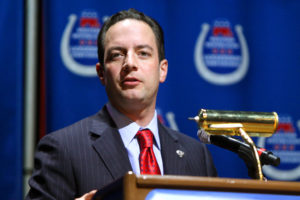
President Donald Trump has designated Reinhold (Rience) Priebus as the White House Chief of Staff. Priebus, the former chairman of the Republican National Committee, succeeds Denis McDonough, who served under the Obama administration. As chief of staff, Priebus is in charge of securing, structuring, and supervising the staff within the White House. He also works closely with President Trump, advising him on key issues and negotiating directly with Congress in order to secure Trump’s interests and implement his agenda. In theory, a strong chief of staff paired with a relatively detached or indifferent president can assume enough power within the executive branch to effectively become the foremost operator of the United States government. The chief of staff controls the circulation of information within the executive branch and access to the president. Controlling the flow of information, and what reaches the president, ensures that the decisions reaching leaders of the executive branch are the most critical and pertinent. Chief of staff may meet with other members of the administration in the president’s place, reporting directly to the president instead. After serving on the general counsel of the RNC and chairman of the Wisconsin Republican Committee, Priebus ran and successfully won three terms as the chairman of the RNC. The GOP names Priebus the “longest serving chairman in modern history,” accrediting him with the successful restructuring of the party’s finances and ground operations during this time. This drew particular focus to the emphasis his second term placed on “harnessing the power of new technology” and spreading the party’s message to all the corners of the nation.
Steve Bannon, Chief Strategist:

Steve Bannon, a former investment banker and outspoken rightwing conservative, has stepped into the role of Chief Strategist under the Trump Administration. Bannon is the cofounder of Breitbart News, a controversial website that Bannon himself deemed a “platform for the alt-right.” After being appointed Chief Strategist, Bannon told The Hollywood Reporter, “Dick Cheney. Darth Vader. Satan. That’s power.” Bannon helped run the Trump Campaign alongside Kushner, and was appointed Chief Strategist and later given a position on the NSC. The appointment to a traditionally nonpartisan council was heavily criticized, however the Trump Administration defended the choice by citing Bannon’s experience as a naval officer. Many who have held the roles Bannon now fills, under both Democrat and Republican administrations, have voiced their criticism of the appointment.
Steven Mnuchin, Treasury Secretary:

Steven Mnuchin, who served as the Finance Chairman for the president’s election campaign, has been nominated to serve as the Treasury Secretary of the United States under the Trump administration. The Treasury Secretary is in charge of advising the president economically, as well as participating in policy-making when it comes to the financial aspect of legislature. Mnuchin began his career in finance after graduating from Yale, working at Goldman Sachs between 1985 and 2002, becoming a partner in 1994. Mnuchin managed hedge funds after leaving the investment firm, as well as producing hit films such as Avatar and Suicide Squad. Before becoming involved in the Trump campaign, Mnuchin donated to politicians such as Paul Ryan, Kamala Harris, Michael Wildes. Since his nomination for the cabinet position, Mnuchin has faced criticism for the harsh foreclosure practices of OneWest, a bank he founded with a group of private equity investors, along with his failure to disclose $95 million in real estate assets. Mnuchin has vowed to cut taxes on the middle class, as well as decreasing corporate taxation, in order to strengthen the economy and maintain a 3-4% growth of the national GDP.
Jared Kushner, Senior Advisor to the President:

Jared Kushner, who assumed the office of Senior Advisor to the President on January 20th, 2017, is a real estate investor, developer, and son-inlaw to President Trump. Kushner is credited with the digital success of Trump’s presidential campaign. The Senior Advisor, along with the Chief of Staff and Chief Strategist, serves as part of the high-ranking advising panel of the president, advising him in foreign, domestic, and strategic affairs. Kushner, who married First Daughter Ivanka Trump in 2009, faced opposition to his appointment due to an antinepotism law. However, he was cleared to serve under his fatherin-law. Controversy also arose around the dismissal of New Jersey governor Chris Christie, an early endorser of President Trump, who jailed Kushner’s father for tax evasion and election fraud in 2005.
Rex Tillerson, Secretary of State:
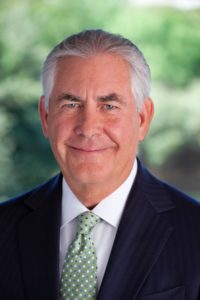
Rex Tillerson is the CEO of Exxon Mobil – one of the top 10 Fortune 500 companies of 2016 and the largest oil company in the world. Having served as the director of the joint U.S.-Russia oil company Exxon Neftegas, his close business ties with Russian President Vladimir Putin – who awarded him the country’s Order of Friendship in 2011 – have been the subject of controversy in the weeks following his nomination. Tillerson has been a long-time contributor to Republican campaigns, donating almost half a million dollars over the past decade. However, Tillerson did not contribute to Trump’s campaign; in fact, he supported Republican candidate Jeb Bush in the primary. According to CBS News, when asked by Democratic Senator Jeanne Shaheen from New Hampshire in front of the Senate Foreign Relations Committee whether he would support Trump’s proposal of a U.S. registry of Muslims, Tillerson responded that he “would need to have a lot more information over how such an approach would be constructed,” but added that he “[does] not support any blanket-type rejection of any particular group of people.” The Committee ultimately voted 11-10 to send Tillerson’s nomination to the full Senate.
James Mattis, Secretary of Defense:
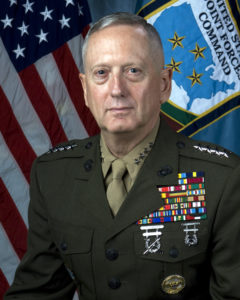
General James Mattis (aka “Mad Dog”) is a retired Marine General who oversaw U.S. General Command during the Iraq war. Over the course of his 44 years in the Marine Corps, Mattis has led tasks forces in Afghanistan and Iraq; he was especially praised for his leadership of Marines in the bloody Battle of Fallujah in 2004. The four star general did, however, raise eyebrows in 2005 when he was quoted saying “it’s fun to shoot some people.” He required special approval from the Senate to be considered for the position, as the law currently states that former servicemen must wait seven years after military service in order to be eligible for nomination. On January 20, the Senate voted 98-1 to appoint General Mattis, making him the first confirmed member of Trump’s cabinet.
Senator Jeff Sessions, Attorney General:
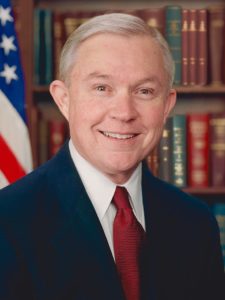
Republican Senator Jeff Sessions of Alabama has served in the Senate since 1997. As the first sitting senator to endorse Trump and a huge supporter on the campaign trail, it is no surprise that he was nominated for a cabinet position almost immediately after Trump’s election. Sessions, who was given the opportunity to become a federal judge years ago, could not obtain the necessary Senate approval after he was accused of making racist comments. Sessions has a long history of supporting conservative policies. Over the course of his career in Washington, Sessions has vehemently opposed immigration reform and has been actively pro-life. He also voted no to adding assault on the basis of sexual orientation to the definition of hate crimes in 2002.
Lt. Gen. Michael Flynn, National Security Advisor:
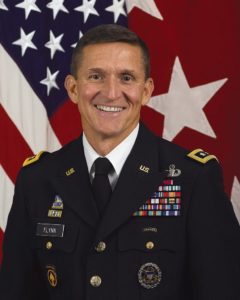
Lt. General Michael Flynn was the director of the Defense Intelligence Agency from 2012 to 2014, when he was forced out – allegedly because of his controversial management style. He has also acted as the assistant director of National Intelligence and served on the ground in both Iraq and Afghanistan before being offered the position of National Security Advisor on November 17, 2016. Flynn’s nomination has been controversial due to questions that arose regarding his handling of confidential information. CNN writes that according to two former government officials who worked closely with the issue, Flynn jeopardized national security during his time in Afghanistan when he shared classified information about terrorist groups with the Pakistani government. Flynn has denied these allegations. Also controversial was a speech he made to the Ahavath Torah Congregation in Stoughton, Massachusetts, in which he called Islamism “a vicious cancer inside the body of 1.7 million people on this planet,” that “has to be excised.” He has also been quoted calling Islam “a cancer.” *Since the publication of this article, General Flynn resigned from his position as National Security Advisor after it was discovered that he had lied to the White House about the content of conversations he had with the Russian ambassador.
Betsy DeVos, Secretary of Education:

As the chair of the American Federation for Children—an organization that promotes charter school education – and a member of the board of the Foundation for Excellence headed by Jeb Bush, DeVos has been an active supporter of charter schools and school choice. In simple terms, charter schools are publicly funded independent schools established by parents, teachers, or community groups that operate under the terms of a charter with local or national authority, while school choice describes a variety of scholarship tax credit programs that offer students alternatives to the ordinary public school. DeVos’ plan, however, aligns more closely with a school voucher program, in which government dollars go to tuition at private schools. The fact that much of this money is funneled into religious organizations has raised questions about the constitutionality of the program. In addition to being a supporter of voucher programs and privatization of public education, DeVos has been an active donor to political campaigns When asked by Bernie Sanders at her confirmation hearing whether her family had donated $200 million to Republican campaigns over the years, DeVos responded, “That’s possible.” Lt. Gen. Michael Flynn photo courtesy of Photo Source Many voiced concerns about DeVos’ eligibility for the position given that neither she nor her children ever attended public school and claim that she was only chosen because of her history of financially supporting Republican candidates. Such concerns were heightened when DeVos was effectively unable to answer Senator Al Franken’s question regarding her position on the prominent educational controversy between proficiency and growth. Nevertheless, she was confirmed by the Senate Committee on February 7th in a tie-breaker with Vice President Mike Pence as the deciding vote.



